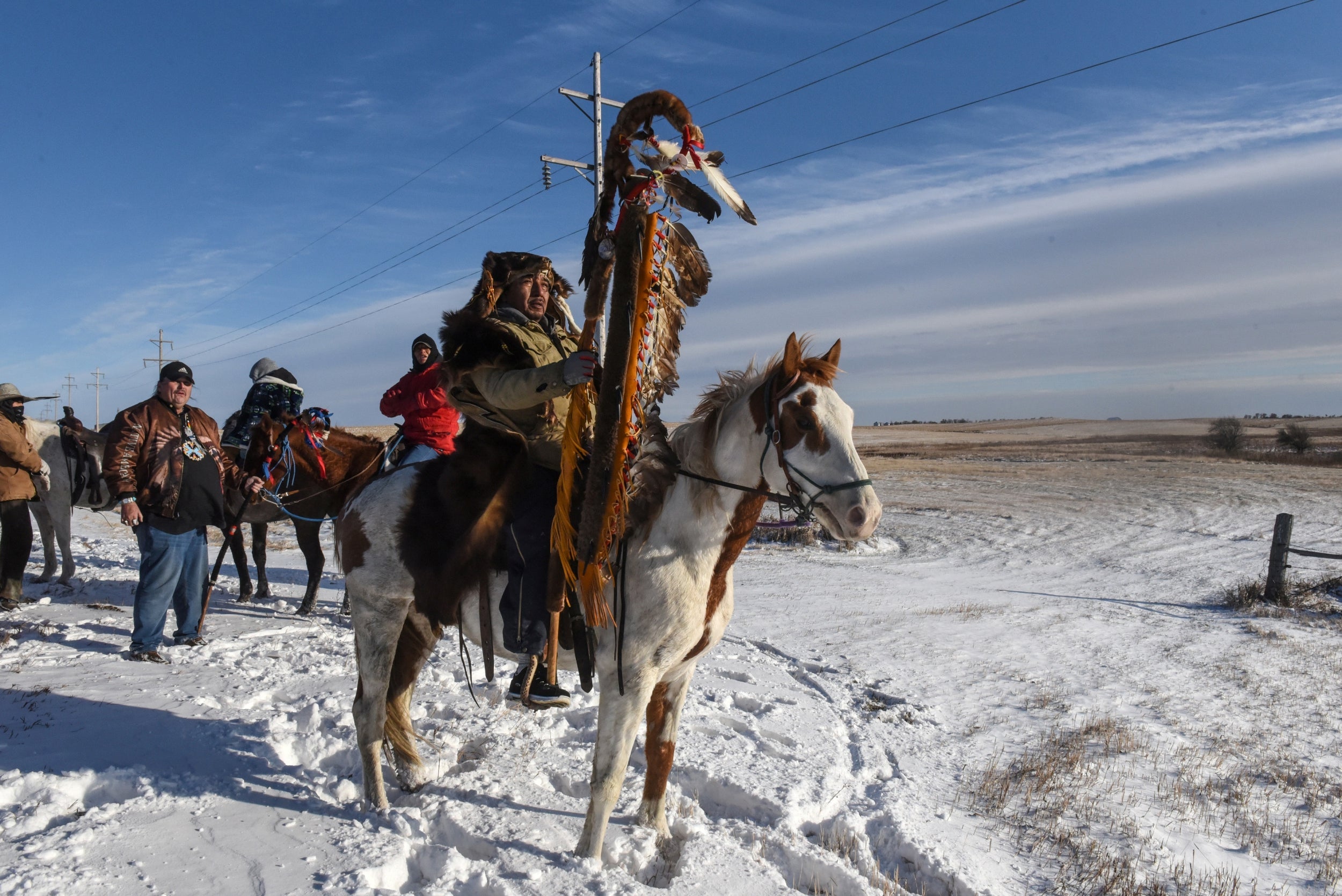Elizabeth Warren introduces legislation to revoke Medals of Honor awarded for Wounded Knee Massacre
Native American issues have become a thorny issue for the Democratic presidential hopeful who has been mocked in racial slurs by Donald Trump

Your support helps us to tell the story
From reproductive rights to climate change to Big Tech, The Independent is on the ground when the story is developing. Whether it's investigating the financials of Elon Musk's pro-Trump PAC or producing our latest documentary, 'The A Word', which shines a light on the American women fighting for reproductive rights, we know how important it is to parse out the facts from the messaging.
At such a critical moment in US history, we need reporters on the ground. Your donation allows us to keep sending journalists to speak to both sides of the story.
The Independent is trusted by Americans across the entire political spectrum. And unlike many other quality news outlets, we choose not to lock Americans out of our reporting and analysis with paywalls. We believe quality journalism should be available to everyone, paid for by those who can afford it.
Your support makes all the difference.Elizabeth Warren has introduced legislation to revoke Medals of Honor from 20 US soldiers who killed hundreds of Native American women and children in the Wounded Knee Massacre of 1890.
The proposal from Warren, a leading candidate for the Democratic presidential nomination, follows a House bill on the same subject that was introduced in June by Rep. Denny Heck of Washington. It has yet to receive a vote.
"The horrifying acts of violence against hundreds of Lakota men, women and children at Wounded Knee should be condemned, not celebrated with Medals of Honor," Warren said in a statement released on Wednesday by her Senate office. "The Remove the Stain Act acknowledges a profoundly shameful event in US history, and that's why I'm joining my House colleagues in this effort to advance justice and take a step toward righting wrongs against Native peoples."
Congress has rescinded more than 900 Medals of Honor since enacting legislation in 1916 to create a board of retired military officers to review previously awarded medals, according to Warren's Senate office.
Warren's proposal, which is co-sponsored by Sens. Jeff Merkley and Ron Wyden of Oregon, Kamala Harris of California, and Patrick Leahy and Bernie Sanders of Vermont, has the support of several Native American tribes, along with groups of descendants of victims of the massacre. Liberal veterans groups like VoteVets and Veterans for Peace are also backing the bill.
The House bill was co-sponsored by several other members, including Reps Sharice Davids of Kansas and Deb Haaland of New Mexico, the first two Native American congresswomen. Haaland is a co-chair of Warren's presidential campaign. It is the first time legislation of this nature has been introduced in Congress, Warren's office said.
Native American issues have long been thorny for Warren, who has been dogged by questions about her past claims of Native American ancestry since her first Senate campaign in 2012. The controversy hampered the start of her presidential campaign, which posted poor fundraising numbers during the first three months of 2019 before rebounding.

In October 2018, as she was preparing to seek the presidency, Warren released the results of a DNA test that showed she had at least one Native American ancestor. But the test led to more criticism from some Native Americans, who argued that the test undermined Native sovereignty. She later apologised for taking the DNA test and introduced a suite of policy proposals to protect tribal lands and bolster funding for programmes that serve Native Americans.
"Like anyone who's being honest with themselves, I know that I have made mistakes," Warren said in August, speaking at a presidential forum on Native issues in Sioux City, Iowa. "I am sorry for harm I have caused. I have listened and I have learned a lot, and I am grateful for the many conversations that we've had together."
Several of Warren's rivals for the Democratic nomination have also released plans to help Native American communities.
President Donald Trump, who regularly mocks Warren by referring to her as Pocahontas, has referenced the Wounded Knee massacre and the infamous Trail of Tears, the 19th-century forced relocation of thousands of Native American people, in Twitter attacks against Warren.
New York Times
Join our commenting forum
Join thought-provoking conversations, follow other Independent readers and see their replies
Comments